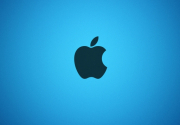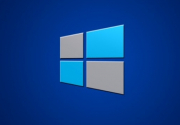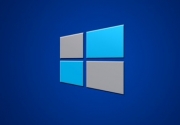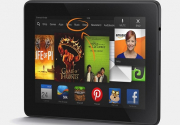Meta has announced that WhatsApp will support chats from third-party messaging apps for users in the European Union. The move is a direct response to the EU's Digital Markets Act (DMA), a major regulation that means designated 'gatekeeper' platforms ... must interact with smaller services. The new functionality, named "third-party chats," will be available on both Android and iOS devices. It is an opt-in feature, meaning users must manually enable it within their settings before they can communicate with people on other supported messaging apps. DMA Compliance Drives Change The Digital Markets ... (view more)
Featured Articles
Details about Google's long-rumored plan to merge its computer and mobile operating systems have emerged from an unlikely source. A now-removed job listing has provided the first public confirmation of "Aluminium OS," a new system designed to bring ... Android to PCs. The job posting, first spotted by Android Authority, was for a product manager role to work on the new operating system. It described Aluminium as being "Android-based" and built with "Artificial Intelligence (AI) at the core." (Source: androidauthority.com ) The End of ChromeOS? The listing strongly suggests that Aluminium OS, also ... (view more)
Microsoft has confirmed its AI assistant, Copilot, is being removed from WhatsApp starting January 15, 2026. This change follows a similar announcement from OpenAI regarding its ChatGPT assistant. The decision is a direct result of upcoming changes ... to WhatsApp's platform policies. Parent company Meta is banning the use of its business API (which lets other companies integrate with WhatsApp) to distribute general-purpose AI chatbots that are not its own. New WhatsApp Policies Force Removal The new terms effectively prohibit rivals from using WhatsApp to reach customers, leaving Meta AI with no ... (view more)
The U.S. Cybersecurity and Infrastructure Security Agency (CISA) has warned smartphone users about commercial spyware aimed at mobile messaging applications. It says tools which use ordinary cellular text messaging as a backup are particularly at ... risk. According to the federal cyber defense agency, these malicious tools are often deployed through social engineering tactics that manipulate users into installing them. Once a device is compromised, the spyware can siphon off sensitive data including private messages, contact lists, and real-time location, potentially giving attackers full ... (view more)
A British man responsible for a high-profile 2020 hack of Twitter, now known as X, has been ordered to pay back 4.1 million British Pounds ($5.37 million USD) in cryptocurrency. Joseph James O'Connor, 26, is currently serving a five-year prison ... sentence in the United States after pleading guilty to multiple charges including computer intrusion and wire fraud. The cyber attack in July 2020 affected the accounts of numerous public figures, including then-presidential candidate Joe Biden, former President Barack Obama, and Tesla CEO Elon Musk. Other notable victims included Bill Gates, Warren ... (view more)
Apple has updated its App Review Guidelines, introducing stricter rules for developers regarding the sharing of user data with third-party artificial intelligence services. This marks the first instance of Apple's guidelines specifically mentioning ... the term "AI," signaling the company's increased focus on the technology. The core change requires app developers to explicitly disclose when and with whom personal user data will be shared, including any third-party AI models. Developers must also obtain clear and direct permission from users before any such data sharing occurs. Stricter Consent ... (view more)
Google has announced a new policy for the Play Store that will identify and flag Android applications using excessive amounts of battery. Starting March 1, 2026, apps that are found to be significant power drainers may be labeled with a warning on ... their store listing and be featured less prominently. The initiative aims to improve the user experience by providing more transparency about how an application might impact a device's battery life before it is downloaded. The new system was developed in collaboration with Samsung, combining real-world battery usage data with Android's ... (view more)
Apple is reportedly working to significantly expand the satellite connection features available on iPhones, moving beyond just calling emergency services. Future updates could allow for more robust communication and connectivity in areas without ... cellular or WiFi coverage. The planned enhancements are said to include the ability to send photos via satellite through the Messages app, an upgrade from the current text-only functionality. Additionally, Apple is reportedly developing satellite connectivity for Apple Maps, which would provide navigation capabilities even when users are offline. ... (view more)
Google has launched "Recovery Contacts," a new security feature made to help you get back into your account by nominating trusted friends or family to help you. It offers a safe option for when you can't use your usual methods, like a recovery email ... or codes sent to your phone. The system works by having a person you trust confirm it's really you. It's made to solve common problems, like losing your phone or access to a backup email, which can block you from finishing the usual security steps. How Recovery Contacts Work To use it, you must add trusted contacts ahead of time in your ... (view more)
What's one of the best one-stop video/image quality enhancement and editing software available for Windows? Answer: Digiarty's VideoProc Converter AI! From the makers of WinX DVD Ripper and WinX Video Converter comes VideoProc Converter: a ... multi-award winning software program that is a one-stop video/image processing program that allows you to restore and enhance video image quality in 1 click, convert video/audio, rip DVDs, edit video, download videos, video to GIF maker ... plus much more! The latest version of VideoProc Converter AI includes the ability to restore blurry faces, colorize ... (view more)
Microsoft has confirmed that a recent Windows security update is triggering some computers to demand a BitLocker recovery key upon startup. This issue primarily affects users on Windows 11 versions 24H2 and 25H2, as well as Windows 10 version 22H2, ... who have installed updates released on or after October 14, 2025. Upon restarting their devices, affected users are confronted with a prompt asking for their BitLocker recovery key. BitLocker is a security measure that encrypts a hard drive to make it more secure if somebody steals a computer or gets unauthorized physical access. Microsoft says ... (view more)
Microsoft is partially reversing its recent decision to simplify the naming scheme for Windows 11 updates after facing significant backlash from users, particularly IT administrators. The company has confirmed that it will reintroduce dates into ... update titles, acknowledging that the initial change made it difficult for technical users to manage system updates effectively. The controversy began when Microsoft announced a new, streamlined naming convention for various updates. The goal was to make the information clearer for everyday users by removing what Microsoft considered "unnecessary ... (view more)
Microsoft has confirmed it has fixed a long-standing and frustrating bug within its Windows operating system that caused computers to restart when users selected the "Update and shut down" option. This correction addresses an issue that has affected ... users of both Windows 10 and Windows 11 for years. Battery Problems For many years, users intending to power down their machines for the day would select "Update and shut down," only to discover later that the computer had actually rebooted to the login screen. This bug was particularly problematic for laptop owners, who would often find their ... (view more)
WhatsApp has announced a significant security enhancement: passkey support for end-to-end encrypted chat backups on both iOS and Android devices. This update means users can secure their valuable chat histories using the same simple methods they use ... to unlock their phones, such as a fingerprint, face scan, or screen lock PIN. (Source: forbes.com ) The move is designed to make robust security more accessible by removing a major hurdle for users. Previously, securing a cloud backup with end-to-end encryption required users to remember a complex password or safeguard a cumbersome 64-digit key. ... (view more)
Apple has lost a significant legal battle in the UK and could be forced to pay up to 1.5 billion Euros ($1.97 billion USD) in damages. A collective action lawsuit, brought on behalf of 36 million UK iPhone and iPad users, successfully argued that ... Apple abused its dominant market position through its App Store policies. The claimants contended that consumers were overcharged for apps and in-app content due to these practices. The Competition Appeals Tribunal ultimately sided with the claimants in its ruling. (Source: bbc.co.uk ) Ruling Deems Fees 'Excessive and Unfair' The case, led by ... (view more)
A dangerous and recurring bug that prevents users from making emergency 911 calls has once again affected Google's Pixel smartphones. Multiple owners have reported that in an emergency, their phones have frozen or failed to connect to 911. This is ... not a new problem for the Pixel line of devices. A similar, high-profile bug caused widespread concern in 2021, which was later identified as a conflict with the Microsoft Teams application. Users Report Alarming Failures Recent complaints on platforms like Reddit describe frightening scenarios where the phones failed in a moment of crisis. Owners ... (view more)
Google has announced a significant breakthrough in quantum computing. It says an algorithm, nicknamed "quantum echoes," is the first that has an advantage in a practical situation. The company reports its Willow quantum chip performed a complex ... calculation approximately 13,000 times faster than the world's most powerful supercomputer. This development moves beyond abstract benchmarks toward solving practical, real-world problems. Like Parallel Computing on Steroids Quantum computing is like parallel computing on steroids - but instead of running many threads, it explores all possibilities in ... (view more)
Bathroom fixtures manufacturer Kohler has launched Dekoda, a toilet-mounted health tracking device that analyzes waste to provide insights about hydration, gut health, and potential medical issues. The device, priced at $599, represents the ... company's entry into digital health monitoring and requires an ongoing subscription to access collected data. Dekoda attaches to the rim of a toilet bowl using an expanding clamp mechanism that requires no tools for installation. The device uses advanced optical sensors and spectroscopy, a technique that observes how light interacts with materials, to ... (view more)
Microsoft is working to address multiple serious bugs introduced by its October, 2025 security update for Windows 11 (dubbed KB5066835 ), which has left users unable to fix their computers when problems occur. The bug disables many keyboards and ... mice at the worst possible moment. The most critical issue affects the Windows Recovery Environment, a built-in troubleshooting tool that automatically appears when a computer fails to start normally. After installing the update, USB keyboards and mice stop working entirely in this repair mode, leaving affected users with no way to click buttons or ... (view more)
Are you caught up in a romance scam? Are blackmailers threatening to expose your pictures and videos to friends and family? If so, you've come to the right place. Keep on reading below for some very helpful information; or, if you need help ASAP, ... contact me here and I'll call back to answer your questions. I'm happy to help. -- Infopackets Reader Peter T. writes: " Dear Dennis, I came across your website after reading your fantastic articles on how to deal with Instagram sextortion and how to handle blackmail on Snapchat . Thank you for that. I have a similar issue. A few days ago I met ... (view more)
California Governor Gavin Newsom has signed legislation establishing safety requirements for Artificial Intelligence (AI) chatbots interacting with children. However, he vetoed a more restrictive bill that would have broadly limited minors' access ... to the technology. The approved legislation, SB 243, makes California the first state to require AI chatbot operators to implement specific safety protocols for companion chatbots. The law takes effect January 1, 2026, and mandates several protective measures for users. Key Requirements of the New Law Under SB 243, chatbot developers must establish ... (view more)
Spotify is expanding a new feature designed to solve a long-standing problem for parents: children's music infiltrating their personalized playlists and recommendations. The streaming service announced that managed accounts are now available for ... Premium Family subscribers in the US, UK, Canada, Australia, Germany, France, and the Netherlands. The feature follows successful pilot programs in 10 markets with smaller user bases. Dubbed 'Managed Accounts,' it allows parents to create separate music experiences for listeners under 13 years old within the main Spotify app. How Managed Accounts Work ... (view more)
Google has declined to fix a security vulnerability in its Gemini AI assistant that allows attackers to embed hidden instructions in emails and calendar invites. The flaw, known as ASCII smuggling, uses invisible characters that users cannot see but ... that artificial intelligence systems can read and process. Security researcher Viktor Markopoulos from cybersecurity firm FireTail discovered the vulnerability and reported it to Google in September. The company dismissed the issue, stating it only constitutes social engineering rather than a technical security bug. How the Attack Works ASCII ... (view more)
Microsoft is intensifying its long-standing push to require a Microsoft account for Windows 11 (a sign on with an email address) versus using a local account which does not require an email address. It's reportedly disabling popular workarounds used ... to create local accounts, an option many users prefer for privacy and simplicity. In a recent preview build released to developers, the company has removed methods that allowed users to bypass the mandatory online sign-in, signaling a stricter enforcement of its policy. Closing Installation Loopholes According to reports on the latest Windows ... (view more)
Navigation app Waze is now rolling out "Conversational Reporting," a new feature that allows drivers to report road hazards using natural voice commands. This update comes approximately one year after the feature was first announced and aims to ... create a safer, hands-free reporting experience for its users. The system is designed to be more intuitive than previous voice command functionalities, which required specific syntax to work correctly. The new feature leverages artificial intelligence to understand conversational language, eliminating the need for drivers to interact with their screens ... (view more)
Microsoft has officially released Windows 11 version 25H2, marking the company's annual "feature update" for 2025. It's a quicker install than many updates, which is down to both the delivery and content of the update. Unlike traditional Windows ... updates that replace entire system files, version 25H2 utilizes a streamlined "enablement package" approach. The update activates feature code already present on machines running 24H2, requiring only a single restart to complete the installation process. Shared Codebase Simplifies Update Process Windows 11 versions 24H2 and 25H2 share the same ... (view more)
Google has launched an advertising campaign targeting Windows 10 users with pop-up messages that imply the operating system is risky. The ads encourage users to switch to Chromebooks as the official end-of-life date for Windows 10 is officially ... here. The pop-up advertisements are said to be appearing on Google.com for those still using the decade-old operating system. The timing coincides with today's deadline, after which users will need to sign up to an extended support program if they plan on using Windows 10 past the due date. In most countries this requires a payment (cash or Microsoft ... (view more)
Infopackets Reader Alejandro M. writes: " Dear Dennis, I stumbled across your website and read your articles on what to do if someone threatens to expose you and how to deal with online blackmail . I have a similar situation. A week ago I joined a ... Spanish sexting group that was recommended in a forum online. It looked active and legit, so I figured I'd give it a go. Not long after, I matched up with an attractive woman that supposedly lives near me. She seemed completely normal - polite, and even a little reserved. The texts were sporadic but eventually picked up steam, at which point she ... (view more)
Microsoft has announced it will provide one year of no-strings free Extended Security Updates (ESUs) for Windows 10 users in the European Economic Area (EEA). Unlike the rest of the world, there's no need to follow any special conditions. Windows ... 10: The End is Near The end-of-support date for Windows 10 is October 14, 2025. Beyond this date, devices will no longer receive crucial security patches unless they are enrolled in the ESU program. Microsoft has shifted policy several times, originally suggesting the ESU was - as with previous Windows editions - only for businesses. It then offered ... (view more)
A new app with an unusual function, Neon Mobile, has surged in popularity to become the number two social app on Apple's US App Store. The app pays users for recordings of their phone calls, which are then sold to artificial intelligence companies. ... The idea is to capture real examples of both what people say in conversations and the way they speak. This could power both language generating models and those which produce spoken audio. How Users Earn Money Neon reportedly pays users 30 cents per minute for calls made to other Neon users and 15 cents per minute for calls to anyone else, with ... (view more)
Need Help? Ask!

My name is Dennis Faas and I am a senior systems administrator and IT technical analyst specializing in cyber crimes (sextortion / blackmail / tech support scams) with over 30 years experience; I also run this website! If you need technical assistance , I can help. Click here to email me now; optionally, you can review my resume here. You can also read how I can fix your computer over the Internet (also includes user reviews).

My name is Dennis Faas and I am a senior systems administrator and IT technical analyst specializing in cyber crimes (sextortion / blackmail / tech support scams) with over 30 years experience; I also run this website! If you need technical assistance , I can help. Click here to email me now; optionally, you can review my resume here. You can also read how I can fix your computer over the Internet (also includes user reviews).
We are BBB Accredited

We are BBB accredited (A+ rating), celebrating 21 years of excellence! Click to view our rating on the BBB.















